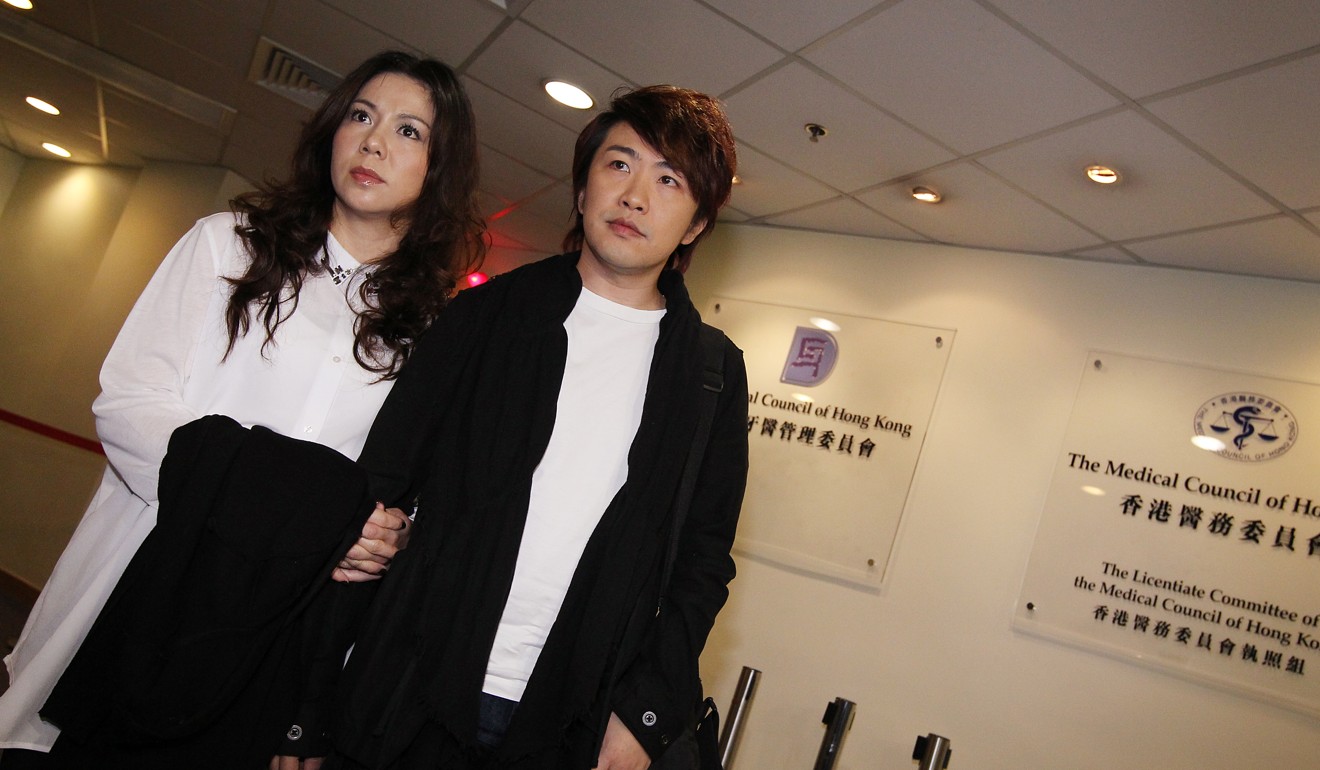
Medical complaints are piling up, and watchdog reforms can’t cure this, chief of Hong Kong doctors’ group says
Medical Association president doubts whether the more than 770 cases could be cleared in a year, as some lawmakers suggested
A lack of experienced doctors available to investigate medical complaints means the professional watchdog responsible for policing 14,000 local practitioners would still be unable to handle the backlog, according to a veteran Medical Association leader.
With 770 cases still under investigation, Dr Gabriel Choi Kin, the Hong Kong Medical Association president and a former chairman of the council’s preliminary investigation committee, doubts whether these cases could be cleared in a year, as some lawmakers have suggested.

The Medical Council, chaired by Professor Joseph Lau Wan-yee, on Thursday said in a statement it welcomed the passage of the Medical Registration (Amendment) Bill 2017 and “will make necessary arrangements to implement the new law”.
“Under the new law, more than one Preliminary Investigation Committee could be established, and more than one inquiry panel could be set up to conduct the inquiries in parallel. These could improve the efficiency of the council in handling complaints,” the council said.
Some 500 new cases are reported every year and patients face a six-year wait for a hearing. The reform aims to restore public trust in the Medical Council, which has long been criticised for operating as a closed shop and taking too long to process complaints.
As well as doubting the council’s ability to clear the backlog, Choi has expressed worries about finding a suitable candidate to chair the committee, which is responsible for investigating every complaint and deciding whether a hearing should be held.
“The chairman and vice-chair of the committee need to be very experienced to handle the various complaints,” said Choi, who resigned as committee chairman in 2016, saying “the workload is killing everyone”.
Aside from retired professors in the council, most other doctors had their own work and it would be “considerably difficult” to find suitable candidates for the committee given its massive workload, Choi said.
“They need to handle and be knowledgeable about anything from obstetrics to paediatrics to make the right decision at the preliminary investigation stage, otherwise cases will just continue to accumulate.”
We still might have to wait a while for new cases to be dealt with, but I believe the process can be shortened from the current six years to two
“Before there was maybe only one team that could deal with the complaints, but now there are more people to handle them. It shouldn’t be a problem,” Pang said.
“We still might have to wait a while for new cases to be dealt with, but I believe the process can be shortened from the current six years to two.”
Under the new plan, four more lay members will be added to the existing four in the council – with three from patients’ groups and one from the Consumer Council. None of the four will be appointed by the city’s chief executive, unlike in the rejected proposal.
Although the reform would help speed up the much delayed process of handling complaints, other concerns still remained.
Choi said there were still improvements that could be made, such as increasing manpower for the council’s secretariat so they can directly deal with the public or patients.
“Council members have restrictions in liaising with patients directly, but if we could hire more people for the secretariat, they could directly tell them what the problem was, what additional information needed to be submitted. That would help solve a lot of problems,” Choi said.
Singer Peter Cheung Shung-tak and his wife, former actress Eugina Lau Mei-kuen, who spent nine years in an uphill battle with the council for justice over the death of their newborn son in 2005, also expressed confidence that the reform would expedite procedures, but said one bottleneck that still remained was relying on members of the public to come forward with sufficient evidence.
Council members cannot approach health care staff directly for investigation purposes at the preliminary stage – they are only allowed to ask hospitals for medical records.
“As a regular citizen, I have no medical knowledge, I have no way of knowing what’s right or wrong. How is it possible that they ask a regular citizen to use such a long time to collect evidence?” Cheung said.
In a separate statement, the Academy of Medicine, the specialists’ training body, which would receive two more elected seats on top of its two existing appointed positions in the council, said it would be “ready to act accordingly”.
Doctors convicted of criminal acts also are brought before the Medical Council.

